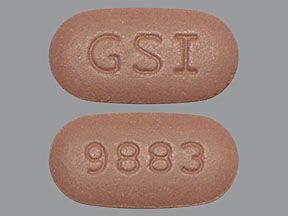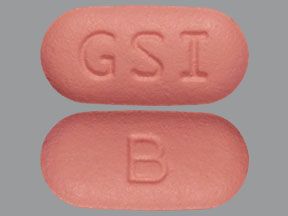Key takeaways
- Biktarvy (bictegravir/emtricitabine/tenofovir alafenamide) is an oral tablet taken once per day to treat HIV-1 in adults and certain children.
- The dosage of Biktarvy varies based on age and weight, but it should be taken at the same time each day.
- People with both HIV and hepatitis B should be closely monitored by their doctor for several months after stopping Biktarvy, due to the risk of worsening hepatitis B.
This medication contains three active ingredients: bictegravir, emtricitabine, and tenofovir alafenamide. Biktarvy is a complete HIV treatment regimen, which means you don’t need to take any other HIV medications with it.
This article describes the dosages of Biktarvy, its strengths, and how to take it.
The following information refers to the usual dosages of Biktarvy. However, ensure you follow your doctor’s guidance and take the dosage they prescribe.
What is Biktarvy’s form?
Biktarvy comes as a tablet you swallow.
What strengths does Biktarvy come in?
Biktarvy tablets contain three active ingredients:
- bictegravir (BIC)
- emtricitabine (FTC)
- tenofovir alafenamide (TAF)
Biktarvy tablets are available in two strength combinations:
- 50 milligrams (mg) of BIC, 200 mg of FTC, and 25 mg of TAF
- 30 mg of BIC, 120 mg of FTC, and 15 mg of TAF
What are the usual dosages of Biktarvy?
Your doctor will prescribe the dosage that works best for you based on your age, weight, and other factors. The following information describes dosages that are commonly used or recommended. But be sure to take the dosage your doctor prescribes for you. They’ll determine the best dosage to fit your needs. In some cases, they may adjust your dosage from those shown here.
Dosage for HIV
The dosage of Biktarvy for adults weighing at least 25 kilograms (kg) is one tablet containing 50 mg BIC, 200 mg FTC, and 25 mg TAF. This is taken once daily around the same time. (For reference, one kg equals about 2.2 pounds [lb].)
What’s the dosage of Biktarvy for children?
Biktarvy is used in children who weigh at least 14 kg.
The pediatric dosage for children weighing less than 25 kg is 30 mg BIC, 120 mg FTC, and 15 mg TAF. This is taken once daily around the same time.
The dosage for children weighing at least 25 kg is the same as for adults. This is one tablet containing 50 mg BIC, 200 mg FTC, and 25 mg TAF taken once daily.
Is Biktarvy used long term?
Yes, Biktarvy is usually a long-term treatment. If you and your doctor determine that it’s safe and effective for your condition, you’ll likely take it long term.
If you have questions about long-term Biktarvy use, talk with your doctor. They can provide more information about the usual length of time this drug is taken for HIV.
Frequently missing a dose of Biktarvy can increase your risk of viral resistance. (This is when your HIV stops responding to Biktarvy’s active ingredients and prevents the medication from working as it typically would to help treat your condition.)
If you miss a dose of Biktarvy, take it as soon as you remember. If you need help remembering to take your dose on time, try using a medication reminder tool. This can include setting an alarm or downloading a reminder app on your phone.
The following are some frequently asked questions about Biktarvy’s dosage and their answers.
Will my dosage be adjusted if I have renal (kidney) problems?
Biktarvy is not prescribed if you have severe kidney problems. This is because your risk of serious side effects is higher when your kidneys can’t clear Biktarvy from your system.
Your doctor will order blood tests to check your kidney function before you begin Biktarvy and during your treatment. No dosage adjustments are needed if your doctor determines it’s safe for you to take this medication.
Your doctor can tell you more about the necessary kidney function and blood tests before you begin treatment.
Will I need a dosage adjustment if I have liver problems?
Your doctor will order tests to check your liver function before you begin treatment with Biktarvy. There’s no dosage adjustment for mild to moderate liver problems. But if you have a severe liver condition, your doctor may recommend a different HIV-1 treatment option.
There is a boxed warning from the FDA about the risk of worsening hepatitis B if you have both HIV and hepatitis B and stop taking Biktarvy. Your doctor will monitor your liver function for several months after you stop this drug to ensure your hepatitis B infection doesn’t worsen. If your condition worsens, you may need treatment.
In rare cases, Biktarvy can cause serious liver problems. Your doctor can provide more information about the safety of this treatment if you have liver problems.
The dosage of Biktarvy you’re prescribed may depend on several factors. These include:
- your age
- your body weight
- other conditions you may have
- other medications you take
- whether or not you’re pregnant
Biktarvy comes as a tablet you swallow once per day. It can be taken with or without food.
Do not take Biktarvy with antacids that contain aluminum or magnesium. If you need to take an antacid, take Biktarvy at least 2 hours before or 6 hours after the antacid.
If you or your child cannot swallow the tablet whole, you can split it into parts to help make it easier. The split tablets should all be taken within 10 minutes.
Do not take more Biktarvy than your doctor prescribes because this can lead to serious side effects.
What to do in case you take too much Biktarvy
Call your doctor right away if you think you’ve taken too much Biktarvy. You can also call 800-222-1222 to reach America’s Poison Centers or use its online resource. But if you have severe symptoms, immediately call 911 (or your local emergency number) or go to the nearest emergency room.
Disclaimer: Healthline has made every effort to make certain that all information is factually correct, comprehensive, and up to date. However, this article should not be used as a substitute for the knowledge and expertise of a licensed healthcare professional. You should always consult your doctor or another healthcare professional before taking any medication. The drug information contained herein is subject to change and is not intended to cover all possible uses, directions, precautions, warnings, drug interactions, allergic reactions, or adverse effects. The absence of warnings or other information for a given drug does not indicate that the drug or drug combination is safe, effective, or appropriate for all patients or all specific uses.






